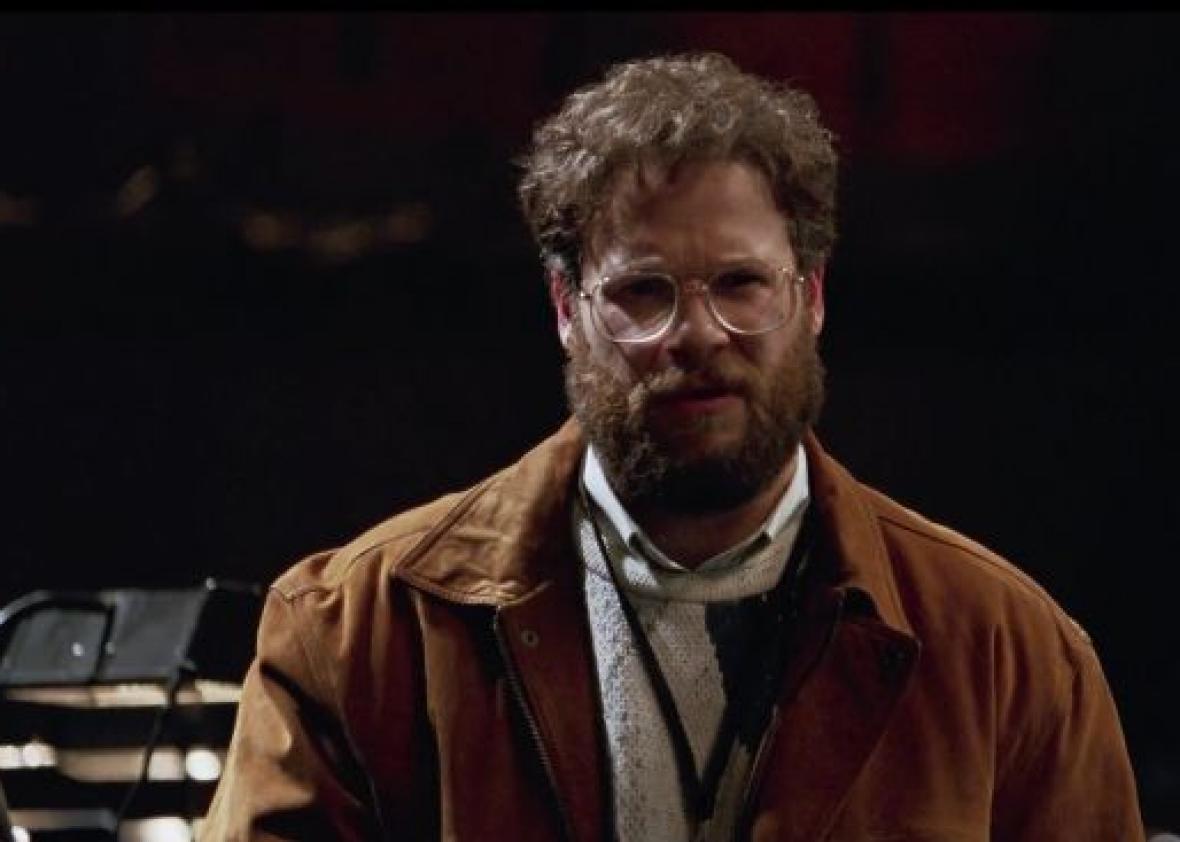Everyone knows Steve Jobs. By virtue of his genius marketing skills, self-promotional savvy, and visionary ideas for the way in which technology could better fit our lives, it’s him we think of first when we think Apple. Four years after his death, he remains a favorite dramatic subject in books, documentaries, and feature films.
Steve Wozniak, Jobs’ Apple co-founder, is also a pioneer, but he’s long stood in the shadow of his former business partner. This is true even though it’s no secret that he, much more than Jobs, made game-changing products like the Apple and Apple II possible. Jobs was the star; Wozniak was the also-ran.
When it comes to the Aaron Sorkin–penned Steve Jobs and the early Oscar buzz surrounding it, the dynamics of their real-life relationship seem eerily to be playing out all over again. Michael Fassbender is by most accounts an early frontrunner for Best Actor for his role as Jobs, in which, as has been duly noted in the press, he’s on “every single page of over 182 pages of dialogue.” Meanwhile, Seth Rogen, playing Wozniak, has yet to garner the sort of intense press and awards speculation that has accompanied Fassbender (or, for that matter, co-star Kate Winslet, who plays Macintosh developer Joanna Hoffman). But the role of the embattled Wozniak is perfectly tailored to Rogen’s talents as an actor. Get ready: Seth Rogen has a real shot in the race for Best Supporting Actor.
In each of the film’s three acts, Wozniak’s desire is, on the surface, simple: He wants Jobs to publicly acknowledge the brainy Apple team members who were responsible for putting the company on the map. But as time passes and the folklore surrounding Jobs grows, so does Wozniak’s desire to get his due. Rogen traces this arc convincingly by reaching to one of his go-to character traits—befuddled exasperation in the face of extreme circumstances, as seen in a movie like Pineapple Express or The Interview—and tailoring it for Sorkin’s script. Here, that frustration comes not from a character’s foolishness—instead, it’s delivered by an incredibly smart and self-assured character, one who is resentful of his partner’s arrogance and the public’s willingness to lap up the myth. In a way the role is just as heightened and theatrical as any of Rogen’s big budget comedic roles—again, this is Sorkin—but with a serious, moody shading that works fantastically.
Throughout Danny Boyle’s movie, it’s Woz’s scenes that resonate the strongest and feel the most satisfying. In Act II, set during the 1988 launch of NeXT following Jobs’ fallout with Apple, the two characters trade verbal jabs; Jobs is unrelentingly mean and condescending to Wozniak, refusing to honor his former collaborator’s request or even acknowledge his efforts face to face. Rogen’s Woz is clearly hurt, but he also pushes back, acting as a sort of stand-in for the audience: “Why does everyone keep saying Steve Jobs is a genius?” he laments.
By the third act, with Jobs back at Apple for the 1998 launch of iMac, Woz gets one more showdown with his former colleague. The explosive climax is carried out in front of a full auditorium, including, presumably, young Apple techies raised on the Jobs myth. Woz is at his angriest, his most exasperated, and Rogen makes every takedown of the dispassionate Jobs count. After several minutes of back and forth, in which Woz deems himself the John Lennon of the team—rather than the Ringo, as Jobs treats him—his final line is a satisfying and well-earned mic drop. It’s the most engrossing moment of the film, and Rogen carries it.
And this shouldn’t be a surprise. Since his debut in Apatow’s Freaks and Geeks, Rogen’s made a specialty of characters whose dramatic travails surprise you, even within a comedy. His showcase episode on that series, “The Little Things,” had his character uneasily grappling with his own sexuality when he learns that his girlfriend was born intersex. Since then, he’s found raw, complex humor in films both big and small, facing his own shortcomings in Knocked Up or supporting a friend with cancer in 50/50. Rogen may not be on everyone’s awards season radar quite yet, but should the film strike a chord with audiences (it opens in limited release Friday, and nationwide on Oct. 23), don’t be surprised if Rogen’s climactic scene is what everyone talks about. And the academy loves a great turn as a foil who turns out to be a little bit more, like Edward Norton in Birdman and Christian Bale in The Fighter.
Can an Apatovian comedian turn a serious performance into an Oscar nomination? It’s happened before. Eight years ago, it would have seemed a laughable notion to think that a schlubby dude who broke out in a high school comedy could wind up getting nominated for an Oscar. Twice. And yet here we are, living in a world where Jonah Hill can oscillate quite easily between making hilariously dumb sequels and working with Martin Scorsese. How’d he do it? By bringing a light touch to the role of the foil in an Aaron Sorkin–written drama. Sound familiar?
Read more in Slate about Steve Jobs:
